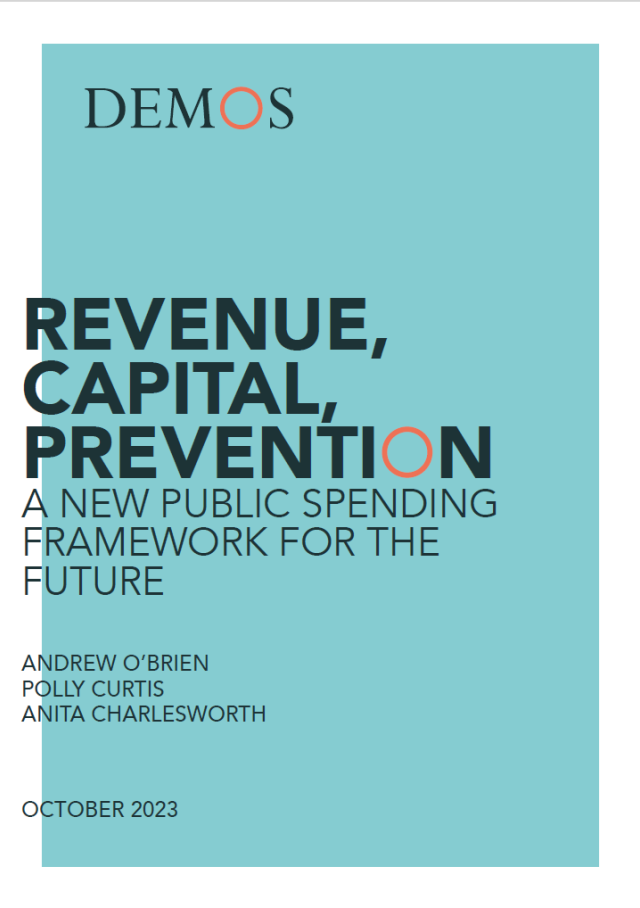Revenue, capital, prevention: a new public spending framework for the future A failure to invest in our future is holding Britain back
October 2023

Across every part of our economy and our society, the cost of short-termism is visible. There is an in-balance between spending on the cost of day-to-day delivery of care and spending which supports long-term efficiency and effectiveness.
At a time when there is significant pressure on public spending, we need to ensure that every penny of expenditure is maximised. Preventative spending has the greatest potential to deliver transformative results that can not only deliver the highest levels of impact but also make the greatest savings to the Exchequer. However, we need to create a system of public spending decision making that incentivises and supports these long term investments.
This new briefing paper, published in collaboration with Demos, calls for the creation of a new category within government expenditure – Preventative Departmental Expenditure Limits (PDEL). This would classify and ringfence preventative investment, in order to inject long-termism into public spending.
Four key benefits of PDEL would be:
- A baseline for prevention: the initial benefit would be to provide a baseline for prevention and have the ability to track the relative balance of prevention expenditure over time and whether we are achieving the shift in public expenditure that we need.
- Greater accountability: creating a dedicated form of expenditure for prevention would enable HM Treasury, Parliament and the public to hold departments to account for spending on prevention.
- Signalling: in the same way that the classification of ‘capital expenditure’ in 1998 was part of an effort to signal the importance of investing in the public estate, creating the classification of preventative investment would also signal the importance placed upon prevention.
- Improving long-term decision making: separating out prevention expenditure means that budget holders are not put in the position of having to choose between helping people in need now, and preventing needs arriving in the future.
Read the full briefing
Work with us
We look for talented and passionate individuals as everyone at the Health Foundation has an important role to play.
View current vacanciesThe Q community
Q is an initiative connecting people with improvement expertise across the UK.
Find out more

